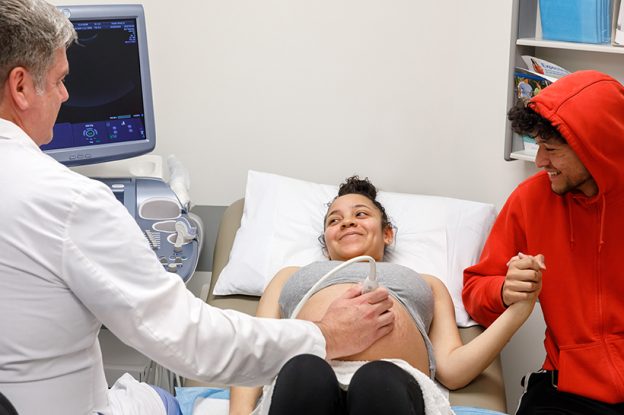
Maternal diabetes and risk for children
One way researchers at Kaiser Permanente work to make our next generation healthier is by studying children’s environments before birth.
Recently several researchers looked at how mothers’ bodies manage sugar—including the type of diabetes that develops in pregnancy, called gestational diabetes—affected their children’s risk for diabetes, overweight/obesity, and cognitive impairment.
Researchers at the Department of Research & Evaluation in Southern California conducted studies that showed children born to women with type 1 diabetes are associated with about twice the risk of autism as those born to women who do not have any form of diabetes. Another study showed that children exposed to untreated gestational diabetes during pregnancy are more likely to have bodies that are unable to properly absorb and use sugar for energy compared with children whose mothers did not have gestational diabetes.
Several R&E researchers including Associate Investigator David Sacks, MD, and Jean M. Lawrence, ScD, MPH, MSSA worked on the Hyperglycemia and Adverse Pregnancy Outcomes, or HAPO, study published in 2008. The study determined that in pregnant women, levels of maternal blood sugar lower than those which defined overt diabetes are associated with a number of negative outcomes for offspring, including increased birth weight and hormone levels that are associated with fetal growth.
More recently, Dr. Lawrence was principal investigator for the HAPO Follow-up Study. That study aimed to determine how maternal glucose and maternal body mass index influenced a child’s growth and a child’s risk of prediabetes and diabetes. The study team began publishing results in 2018.
“In general, we found that outcomes 8 to 10 years after that pregnancy are along the same continuum as the ones we saw at the time of delivery,” Dr. Lawrence said. “Children are more likely to have bad outcomes, such as insulin resistance, if their mom was in the higher end of the glucose distribution.”
Anny Xiang, PhD, MS, director of R&E’s Division of Biostatistics Research, published a study in JAMA in 2015 that showed that gestational diabetes diagnosed early was associated with autism risk in children. In 2018, she extended that work by including pregestational type 1 and type 2 diabetes and showed that both were also associated with risk of autism.
Also in 2018, she published work on attention deficit and hyperactivity disorder that showed that type 1, type 2, and gestational diabetes requiring medication during pregnancy were associated with a risk for attention deficit and hyperactivity disorder in children.
“A lot of disease tracks back to conditions during pregnancy,” Dr. Xiang said.
Dr. Sacks concluded: “It’s important to know whether or not you’ve got diabetes or prediabetes before you get pregnant, Then, you and your doctor can do everything possible to make sure your baby has the healthiest start possible.”
_________
To read the full article, please check out the Department of Research & Evaluation’s 2018 Annual Report.





